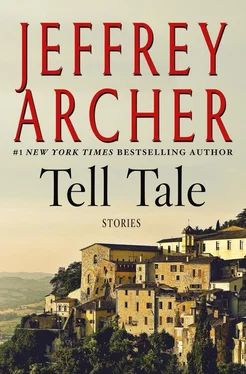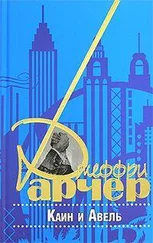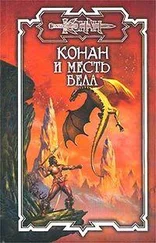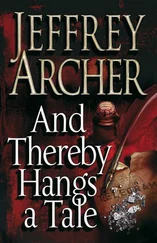My thanks to
Simon Bainbridge, Henry Colthurst, Naresh Kumar, Christian Neffe, Alison Prince, Catherine Richards, Susan Watt, and Maria Teresa Burgoni.
This is the first set of short stories I have written since The Clifton Chronicles.
Once again, some of them are loosely based on incidents that I’ve picked up on my travels from Grantchester to Calcutta, from Christchurch to Cape Town. These tales are marked with an asterisk on the table of contents, while the remainder are the result of my imagination.
Jeffrey Archer
2017
A challenge
Many years ago an editor from Reader’s Digest in New York invited me to write a 100-word story with a beginning, a middle, and an end. As if that wasn’t enough of a challenge, he insisted that it couldn’t be 99 words or 101.
Still not satisfied, he asked me to present the finished piece within twenty-four hours.
My first effort was 118 words, my second, 106, and my third, 98. I wonder if you can work out which two words I had to put back in.
The result was “Unique,” which you will find on the next page.
It may interest readers to know, this is also 100 words.
Paris, March 14, 1921.
The collector relit his cigar, picked up the magnifying glass, and studied the triangular 1874 Cape of Good Hope.
“I did warn you there were two,” said the dealer, “so yours is not unique.”
“How much?”
“Ten thousand francs.”
The collector wrote out a check, before taking a puff on his cigar, but it was no longer alight. He picked up a match, struck it, and set light to the stamp.
The dealer stared in disbelief as the stamp went up in smoke.
The collector smiled. “You were wrong, my friend,” he said, “mine is unique.”
Cortoglia is a delightfully picturesque town in the heart of Campania. It rests high on a hill, with commanding views toward Monte Taburno to the east, and Vesuvius to the south. It is described in Fodor’s Italy quite simply as “heaven on earth.”
The population of the town is 1,472, and hasn’t varied greatly for over a century. The town’s income is derived from three main sources: wine, olives, and truffles. The Cortoglia White, aromatic with a vibrant acidity, is one of the most sought-after wines on earth and, because its production is limited, is sold out long before it’s bottled. And as for the olive oil, the only reason you never see a bottle on the shelves of your local supermarket is because many of the leading Michelin-starred restaurants won’t consider allowing any other brand on their premises.
The bonus, which allows the locals to enjoy a standard of living envied by their neighbors, is their truffles. Restaurateurs travel from all corners of the globe in search of the Cortoglia truffle, which is then only offered to their most discerning customers.
It is true that some people have been known to leave Cortoglia and seek their fortunes further afield, but the more sensible among them return fairly quickly. But then, life expectancy in the medieval hill town is eighty-six years for men and ninety-one for women, eight years above the national average.
In the center of the main square is a statue of Garibaldi, now more famous for biscuits than battles, and the town boasts only a dozen shops, two restaurants, and a wine bar. The council wouldn’t sanction any more for fear it might attract tourists. There is no train service, and a bus appears in the town once a week for those foolish enough to wish to travel to Naples. A few of the residents own cars, but have little use for them.
The town is run by the consiglio comunale, made up of six elders. The most junior member, whose lineage only goes back three generations, is not considered by all to be a local. The owner of the winery, Lorenzo Pellegrino, chairman (ex officio), Paolo Caraffini, the manager of the olive oil company, and Pietro De Rosa, the truffle master, are all automatically members of the council, while the three remaining places come up for election every five years. As no one has stood against the schoolmaster, the pharmacist, or the grocer for the past fifteen years, the voters have almost forgotten how to conduct an election.
The Polizia Locale had consisted of a single officer, Luca Gentile, whose authority derives from the city of Naples, and Luca tries not to disturb them unnecessarily. This story concerns the one occasion when it was necessary.
No one could be certain where Dino Lombardi had come from, but like a black cloud, he appeared overnight, and was clearly more interested in thunderstorms than showers. Lombardi must have been around six foot four, with the build of a heavyweight boxer who didn’t expect his bouts to last for more than a couple of rounds.
He began his reign of terror with the weaker inhabitants of the town, the shopkeepers, the local tradesmen, and the two restaurateurs, whom he persuaded needed protection, even if they couldn’t be sure from whom, as there hadn’t been a serious crime in Cortoglia in living memory. Even the Germans hadn’t bothered to climb that particular hill.
To be fair, the policeman had retired the year before, at the age of 65, and the council hadn’t got around to replacing him. But the real problem arose when the mayor, Mario Pellegrino, died at the age of 102, and an election had to be held to replace him.
It was assumed that his son Lorenzo would succeed him. Paolo Caraffini would then become chairman of the council, and everyone else would move up a place, with the vacancy being filled by Umberto Cattaneo, the local butcher. That was until Lombardi turned up at the town hall, and entered his name on the list for mayor. Of course, no one doubted Lorenzo Pellegrino would win by a landslide, so it came as something of a surprise when the town clerk, on crutches, his left leg in plaster, announced from the steps of the Palazzo dei Municipio that Lombardi had polled 551 votes, to Pellegrino’s 486. On hearing the result, there was a gasp of disbelief, not least because no one knew anyone who had voted for Lombardi.
Lombardi immediately took over the town hall, occupied the mayor’s residence, and dismissed the council. He’d only been in office for a few days when the citizens learned he would be imposing a sales tax on all three of the town’s main companies, which was later extended to the shopkeepers and restaurateurs. And if that wasn’t enough, he began to demand a kickback from the buyers as well as the sellers.
Within a year, heaven on earth had been turned into hell on earth, with the mayor quite happy to be cast in the role of Satan. So, frankly, it didn’t come as a great shock to anyone when Lombardi was murdered.
Luca Gentile told the chairman of the council that as murder was out of his league, he would have to inform the authorities in Naples, and he admitted in his report that there were 1,472 suspects, and he had absolutely no idea who had committed the crime.
Naples, a city that knows a thing or two about murder, sent one of its brightest young detectives to investigate the crime, arrest the culprit, and bring them back to the city to stand trial.
Antonio Rossetti, who, at the tender age of thirty-four, had recently been promoted to lieutenant, was assigned to the case, although he considered it an inconvenience that would keep him out of the front line — but surely not for long. He assured the chief of police that he would wrap up the case as quickly as possible, and return to Naples so he could deal with some real criminals.
Читать дальше






![Джеффри Арчер - The Short, the Long and the Tall [С иллюстрациями]](/books/388600/dzheffri-archer-the-short-the-long-and-the-tall-s-thumb.webp)





